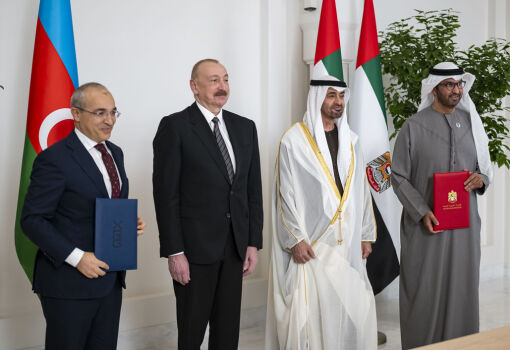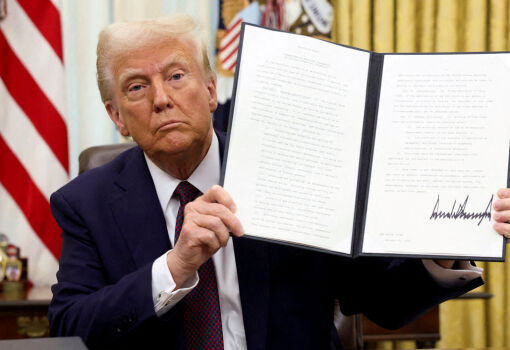
Yuri Rizha
In this regard, farmers have already started a struggle with oilseed processors for a purchase price “not inferior to the regional average”. The management of the largest enterprise of the industry Floarea Soarelui SA is still reacting to the sharp attacks of farmers’ organizations with restraint. Processors need raw materials, war with farmers – definitely not. But the agrarians should not overestimate their strength and influence on the country’s authorities either.
Earlier Logos Press reported that four non-governmental organizations of farmers – among which the consistently oppositional but pro-European “Forța Fermierilor” stands out with its intransigent position – demand from the Moldovan authorities to prolong the licensing regime for import of grain and oilseeds from Ukraine to the Moldovan market for the whole year 2025. Moreover, not only to extend this regime of “manual control” of imports, but also to supplement the list of licensed goods with rapeseed.
What does this mean? In fact, we are talking about blocking supplies of grain, sunflower and (potentially) rapeseed from Ukraine by administrative means.
Licensing of wheat, corn and sunflower imports to Moldova was first introduced on October 11, 2023, and it was in effect during the entire period of the state of emergency – until the end of that year. Then this regime was prolonged more than once, but the deadline of the current “deprivation of freedom of import” expires on June 30, 2025.
Nominally, only the economic entities of the Republic of Moldova involved in the cultivation of animals, as well as in the production of fodder, flour products and bakery/confectionery products, fats and oils have the right to obtain a license to import grain and oilseeds. To the application for a license, these operators must attach documents justifying the need to replenish raw materials at the expense of imports. In fact, it is impossible to obtain such a license in a timely manner and for the required volume of products, as the applicants claimed.
In particular, according to the words of Stella Ostrovetchi, General Director of Floarea Soarelui SA, they had to wait for months for the approval of a license for such a volume of Ukrainian sunflower, which could be processed at this enterprise in just a week or even a few days. Obviously, any rhythmic import of substantial volumes of sunflower was out of the question. Especially in a situation when prices for oilseed raw materials and supply/demand situation were changing rapidly. At the same time, it was obvious that the “barrier” regime of licensing of import of agricultural products in the Republic of Moldova was aimed exclusively at the supply of cheap raw materials from Ukraine. By the end of last year, the situation on the Ukrainian market of grain and oilseeds stabilized and the prices for these goods increased. Accordingly, the expediency of their import from Ukraine to Moldova disappeared.
In February 2025 the Parliament of Moldova adopted amendments to the Law on temporary licensing of import of grains and oilseeds, which abolished the need to obtain licenses for import of grains and oilseeds from countries, whose share in supplies to the market of Moldova “for 3 consecutive years did not exceed 10%”. That is, it referred to deliveries to the Moldovan market of the mentioned products from the European Union, which already do not exist.
At the same time, the law stipulates that “during the period of regulation of demand for imported grain and oilseeds, the Ministry of Agriculture will issue an order establishing a list of countries whose imports will be subject to a license regime”. In fact, with the above-mentioned declaration, farmers’ organizations directly push the Moldovan Ministry of Agriculture to extend the licensing of agricultural products from Ukraine.
But is there a risk that in the absence of “barrier licenses” the Moldovan market will be flooded, in particular, with cheap sunflower and rapeseed from Ukraine?
As agribusiness expert Yuriy Rizha believes, at the moment there are no prerequisites for the expansion of Ukrainian raw materials (not to be confused with final food products – LP note) to the Moldovan market.
First of all, since the second half of last year in Ukraine, there has been a trend towards stabilization and increase in prices for many types of agricultural products and some foodstuffs.
Secondly, the expected expansion of agricultural areas under oilseed crops for the harvest-2025 in Ukraine will not necessarily lead to a decrease in prices for these products.
Thirdly, the extreme aggravation of the geopolitical situation in the Middle East and, not excluded, in Ukraine this summer will almost certainly serve as a catalyst for oil prices, which means that oil, sugar and grain prices may rise along the chain. In other words, energy-intensive commodities (although biodiesel and bioethanol have been “in the shadow” of photovoltaics, wind and other “green” electricity in recent years, their significant role in the energy markets of some countries and entire continents has not yet been canceled).
Fourth, the rise in the price of energy resources is guaranteed to entail a rise in the cost of transportation logistics. For the market of such voluminous commodities as grains and oilseeds, this is a significant factor formatting business scenarios. Thus, when transportation logistics are comparatively cheap, market priority is usually given to traders-exporters of raw materials. When transportation logistics are expensive, raw material processors and exporters of final products with high added value have a better chance of commercial success.
Fifth, the farmers’ claim to block imports is, by and large, not even for higher purchase prices for domestic raw materials, but for timely payments for their supply to domestic processors. It is no secret that the same company Floarea Soarelui SA periodically accumulated very large debts to farmers for purchased sunflower. By removing this nervous element from the relationship, farmers and processors will surely come to an agreement in the new season.

